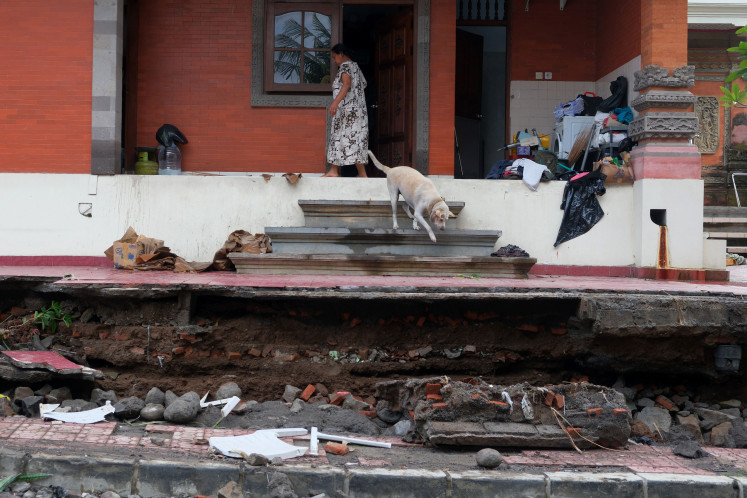Popular Reads
Top Results
Can't find what you're looking for?
View all search resultsPopular Reads
Top Results
Can't find what you're looking for?
View all search resultsNew petrochemical estate for West Papua
The government plans to build a petrochemical industrial estate in West Papua next year to help meet rising demand for petroleum-based products and reduce dependency on imports, officials say
Change text size
Gift Premium Articles
to Anyone
T
he government plans to build a petrochemical industrial estate in West Papua next year to help meet rising demand for petroleum-based products and reduce dependency on imports, officials say.
Industry Minister MS Hidayat said on Thursday that a master plan was being drafted and would soon be followed by a feasibility study.
“We have a potential space of 400 hectares there. The gas supply for the industry can be sourced from the Tangguh field,” he told reporters at his office in Jakarta.
The master plan, which maps out the infrastructure and funds required for the development, should be completed by October, according to Industry Ministry director general for industrial regions development Dedi Mulyadi.
British Petroleum has already expressed an interest in investing in the estate, he added.
Other investors submitting proposals include state-owned fertilizer firm PT Pupuk Sriwijaya (Pusri) and foreign investors, including some from South Korea, Japan and Germany, the ministry’s director general for manufacturing-based industry Panggah Susanto said.
The investment needed for the project might total US$4.3 billion, with $800 million spent on building a methanol plant, $500 million for a polyprophylene plant, $2 billion for ammonia- and urea-fertilizer plants, and $1 billion for building utilities and port facilities.
The ministry has consulted the Energy and Mineral Resources Ministry (ESDM) over the necessary gas supply for the project.
“We have requested, to the ESDM, the gas and once there’s certainty about the gas supply, we can start the project,” he said.
According to Industry Ministry estimates, the first phase of the petrochemical industrial estate will require around 382 million standard cubic feet per day (mmscfd) of gas to fuel two urea plants with a total production capacity of 3,500 tons per day, two ammonia plants with a production capacity of 2,000 tons per day and a methanol plant. Meanwhile, the second phase of the project will need around 200 mmscfd of gas to develop a diesel plant.
“We should begin soon, as the gap between local production and imported materials has been higher than consumption (of petrochemical products) by industrial sectors, such as packaging and automotive industry that continue to surge,” Panggah said.
Industry leaders have agreed that the development of an integrated petrochemical industrial estate will help reduce production costs for olefin, aromatic and fertilizers.
Overseas, as well as local, firms have geared up to realize investment in the sector as demand for petrochemicals is predicted to rise in line with the country’s economic growth.
In the next year, companies plan to invest about $26 billion in the industry.










